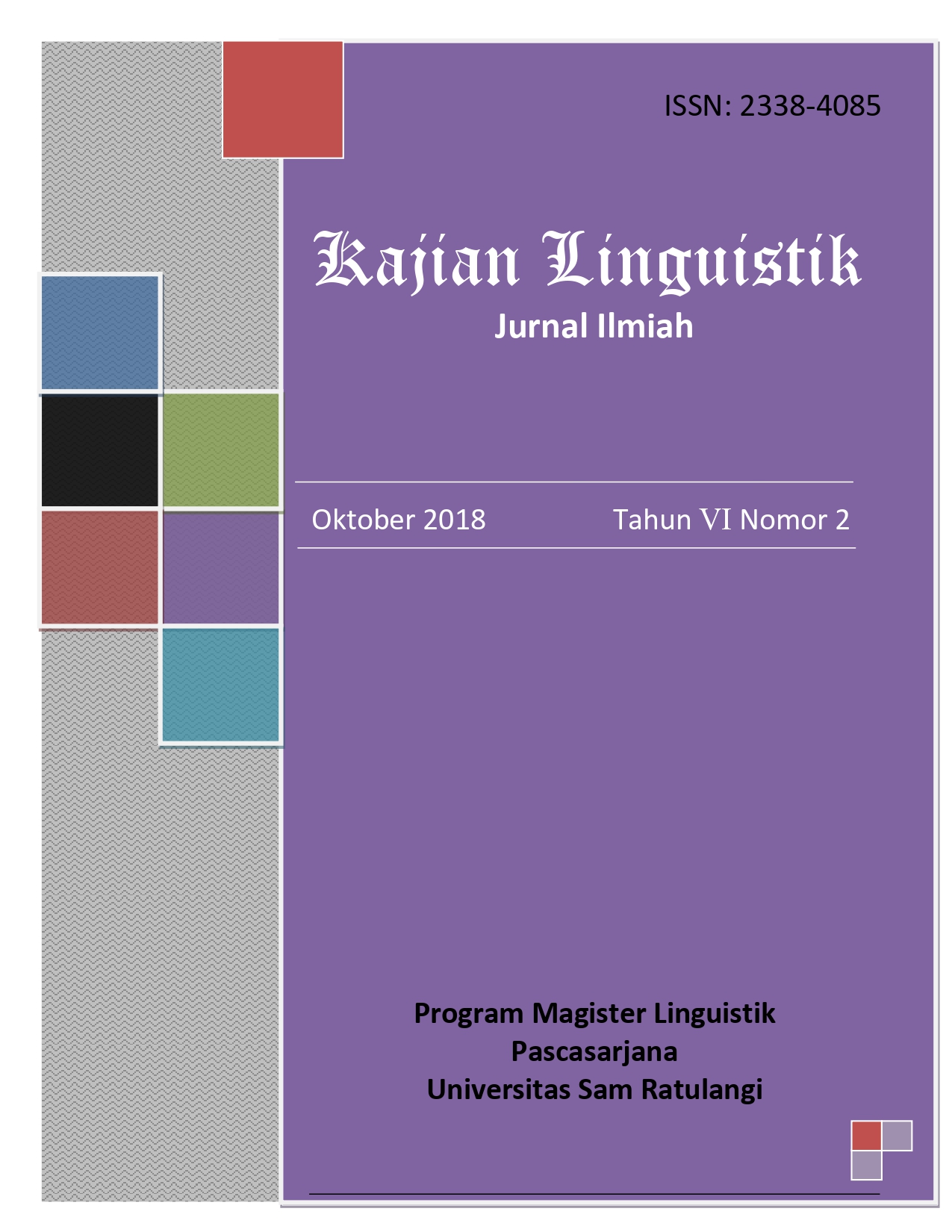Penggunaan Alih Kode Instruktur dalam Proses Belajar Mengajar Bahasa Inggris di ELC Education Manado
DOI:
https://doi.org/10.35796/kaling.6.2.2018.24769Abstract
This study focussing on the use of code switching produced by instructors in English teaching and learning process based on Sosiolinguistics and language teaching point of view. This research uses qualitative method and records the process of teaching English and interviews the instructors and students as a technique of this research to find the importance of code switching. The data were transcripted and analyzed use the concepts of Wardhaugh and Suwito about types of code switching and functions of code switching use the concept of Margana. The research shows that there are 4 types of code switching intern, extern, metaphorical dan situasional code switching. Extern code switching are code switching from English to Indonesian (i.e. do you know what day is tomorrow? Besok hari apa?) and English to Manado Malay (i.e. you know what I mean? Mangarti nda?). Intern code switching is code switching from Manado Malay to Indonesian (i.e. besok hari libur jadi nda ada les. Lesnya nanti minggu depan). Metaphorical code switching is a code switching without any changing topic. Situasional code switching is a code switching with changing topic. Also, there are 7 types of code switching, they are repetition, clarification, exploration, explanation, giving assignment, checking students’ understanding and giving warning/suggestion. It can be concluded that there are 4 types of code switching produced by instructors in English teaching and learning process. They are extern, intern, metaphorical and situasional code switching. Besides, there are 7 functions of code switching. They are repetition, clarification, exploration, explanation, giving assignment, checking students’ understanding and giving warning/suggestion.
Keywords : Code switching, Instructors utterences, English teaching and learning  process                    Â



